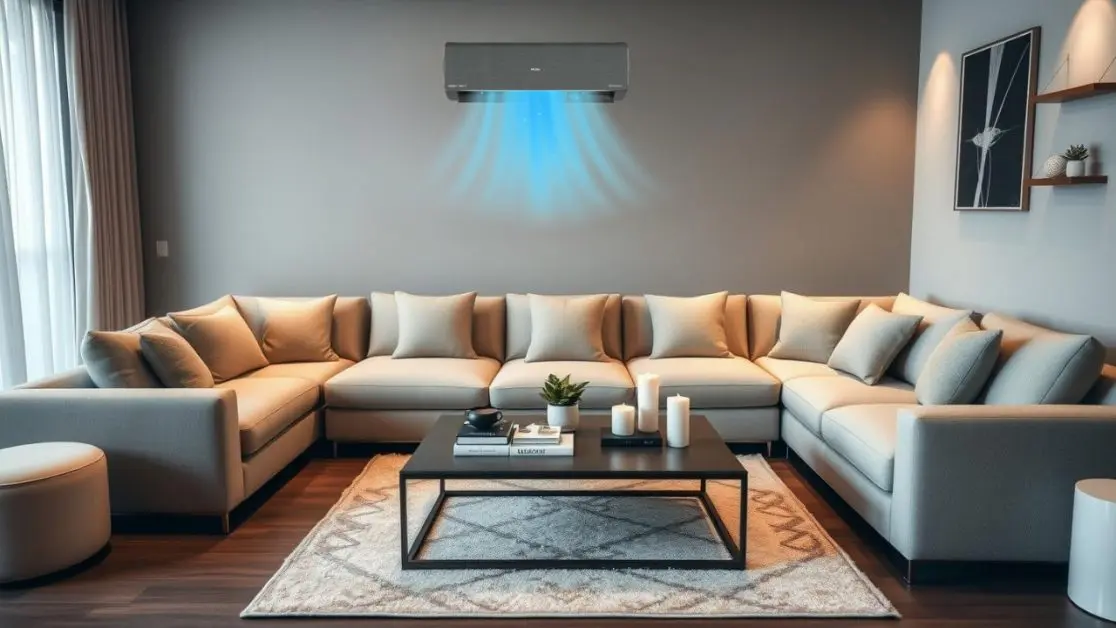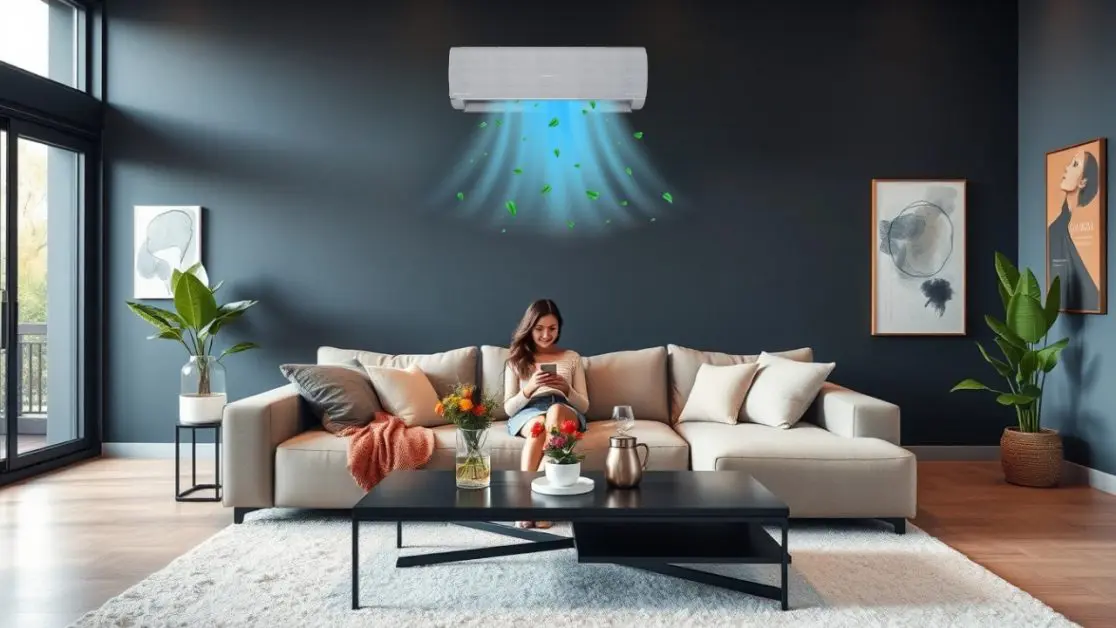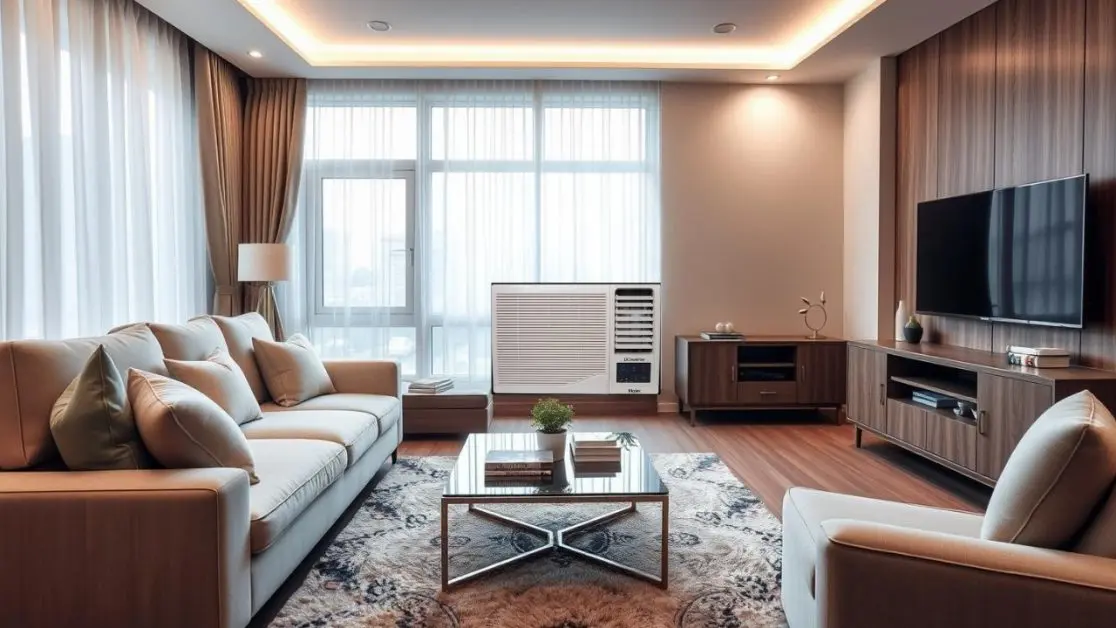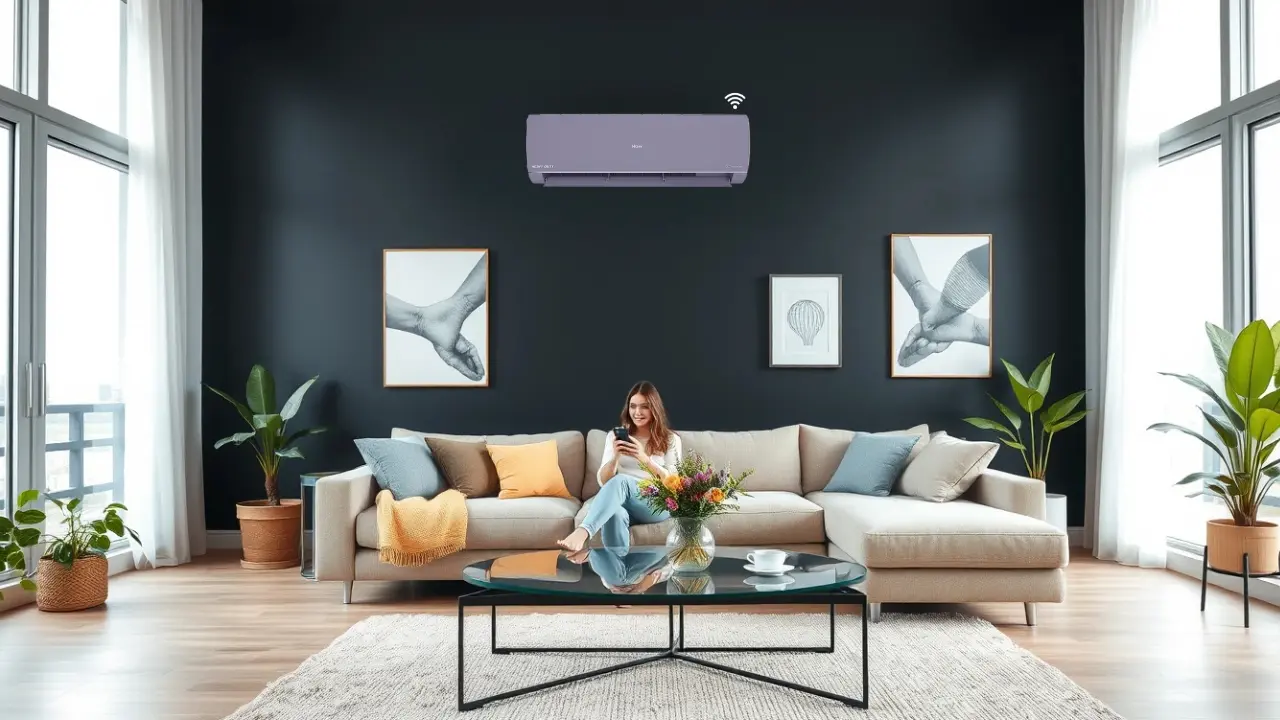Feeling the heat? Choosing the right air conditioner can be tricky, but it’s crucial for comfort and savings.
First, measure your room’s square footage. Larger rooms need more cooling power. Then, consider insulation. Well-insulated rooms need less powerful units. Think of it like this: a small, efficient AC can handle a well-insulated room, while a larger, less efficient one might struggle in a poorly insulated space.
Look for the British Thermal Unit (BTU) rating. More BTUs mean more cooling. Match the BTU to your room size. Energy Efficiency Ratio (EER) matters too; higher EER means less energy waste. Don’t forget features like timers and sleep modes.
By understanding your room and these specs, you’ll find the perfect AC to keep you cool and your bills low.
Locating the Appropriate Tonnage Corresponding with Room Dimensions

An air conditioner is rated in “tons” according to its cooling capacity. One ton refers to the cooling power required to melt a ton of ice in a day. Choosing the right tonnage ensures better performance from the AC system while simultaneously saving energy.
Room Size and Recommended AC Capacity:
| Room Size (Sq. Ft.) | Recommended AC Capacity (Tons) |
| Up to 100 | 15 Ton |
| 100 – 150 | 1.5 Ton |
| 150 – 250 | 1.6 Tons |
| 250 – 400 | 2 Tons, 2,2 Tons |
As the space increases proportionately, the AC unit’s cooling efficiency improves. Conversely, a lower room volume leads to erratic cycling of the compressor, which wastes electricity and accelerates wear.
The Role of Insulation in AC Performance
The performance of an AC and the insulation quality of a space work together. Poor insulation leads to higher energy consumption, even when using a high-tonnage AC unit. Insulation factors include:
Insulation Factors:
- Windows and Doors: Windows should be equipped with thermal curtains to prevent warm air from entering. The room must be insulated to keep cool air in.
- Window Type and Size: Larger windows without insulation lead to greater heat exchange, affecting cooling efficiency.
- Air Leakage: Proper sealing prevents unwanted heat exchange, improving energy efficiency.
- Flooring Material: Wooden floors help maintain a cooler environment, whereas tiles and concrete absorb cold.
- Room Orientation: South- and west-facing rooms absorb more heat, increasing AC power consumption.
An insulated room with well-built walls will reduce AC power usage, whereas a poorly insulated room will increase energy consumption.
Things to Check in an Air Conditioner

Modern air conditioners come with advanced comfort features. Important considerations include:
1. Enhanced Cooling Comfort
The latest DC inverter technology allows ACs to cool a room 20 times faster than conventional models. This feature is ideal for regions with extreme temperatures.
2. Supersonic Cooling in 10 Seconds
Some areas experience intense summers. ACs with rapid cooling technology can lower temperatures within 10 seconds, ideal for households needing quick relief.
3. Frost Self-Cleaning Technology
ACs accumulate dust, bacteria, and mold, affecting air quality. Indoor Wet Wash technology removes up to 99.9% of contaminants, improving hygiene.
The inner components of an AC collect dirt and moisture. Frost Self-Cleaning technology eliminates these impurities, ensuring clean air circulation.
5. Heavy-Duty Performance with Up to 65% Energy Savings
Hexa Inverter Technology enhances energy efficiency, reducing electricity bills while maintaining performance.
6. 20 meter Long Airflow for Uniform Temperature Control
Traditional ACs often cool unevenly. Long airflow patterns distribute cool air evenly throughout the room.
7. 7-in-1 Intelli Convertible Modes
These adaptive modes optimize energy use by adjusting cooling based on the indoor needs , you can adjust accordingly.
8. High Ambient Performance for Extreme Conditions
For areas with temperatures exceeding 50°C, High Ambient Performance ensures uninterrupted cooling during extreme heat.
9. Hyper PCB for Enhanced Durability
The Printed Circuit Board (PCB) is crucial for stable AC performance. Hyper PCB technology enhances durability, making the unit more resistant to power fluctuations.
Choosing Between Window and Split AC

Window AC:
- More affordable but noisier
- Suitable for rooms up to 150 sq. ft.
- Simple installation
Split AC:
- Ideal for larger rooms
- Supports advanced features such as inverter technology and air purification
- Quieter and more efficient cooling
A split air conditioner with an inverter compressor is optimal for enhanced cooling and energy efficiency if space allows.
AC Buying Tips: Things Not to Do
- Ignoring Room Size: An oversized or undersized AC affects cooling efficiency.
- Forgetting Energy Ratings: The ISEER rating helps estimate long-term electricity costs.
- Overlooking Insulation: Poor insulation forces the AC to work harder, consuming more energy.
- Picking the Cheapest Model: Low-cost ACs may require frequent repairs and maintenance.
- Skipping Regular Maintenance: Not replacing air filters and servicing the AC decreases performance.
Helpful Buying Tips for Consumers in India – Why Consider an Inverter AC
- Less maintenance: Fewer moving parts reduce servicing needs.
- Energy efficiency: Fewer operational components mean lower power consumption.
- Service availability: Good customer service is more critical than brand names.
Conclusion
Choosing an air conditioner depends on factors like room size, insulation, and energy efficiency. Fast-cooling ACs combined with high-efficiency inverters enhance user comfort and convenience.
Haier India incorporates industry-level technologies like supersonic cooling, frost self-cleaning, and Intelli Convertible modes in their air conditioners, ensuring maximum efficiency. With these units, you never have to worry about finding a powerful and durable air conditioner again.

